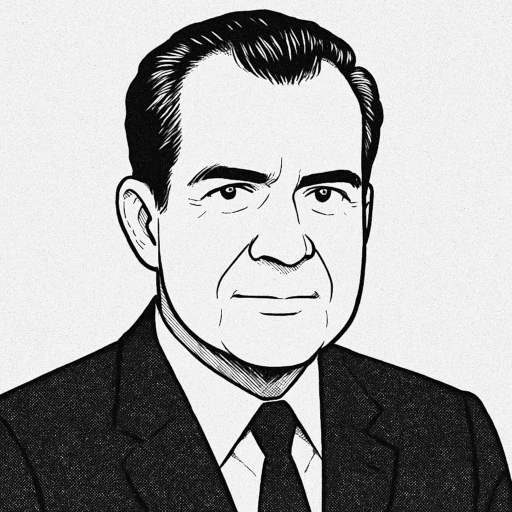“In the long term we can hope that religion will change the nature of man and reduce conflict. But history is not encouraging in this respect. The bloodiest wars in history have been religious wars.”

- January 9, 1913 – April 22, 1994
- American
- The 37th President of the United States, Lawyer, Politician
table of contents
Quote
“In the long term we can hope that religion will change the nature of man and reduce conflict. But history is not encouraging in this respect. The bloodiest wars in history have been religious wars.”
Explanation
In this quote, Richard Nixon reflects on the paradox of religion’s role in human history, acknowledging its potential to uplift humanity while also noting its frequent association with violent conflict. The hope that religion might “change the nature of man and reduce conflict” reveals an idealistic vision: that spiritual teachings could lead to greater peace, compassion, and understanding. Yet the immediate contrast—“history is not encouraging in this respect”—underscores Nixon’s realism and historical skepticism, pointing to a legacy where religion has often been the catalyst for division and war.
The historical context for this statement likely comes from Nixon’s post-presidential reflections or his foreign policy worldview. He often grappled with global ideological struggles, including the Cold War’s tension between atheistic communism and Western religious traditions. Nixon’s insight here aligns with a broader pattern in his thinking: recognizing aspirations for peace while confronting the grim patterns of history. His mention of religious wars evokes the Crusades, the Thirty Years’ War, and countless sectarian conflicts that have cost millions of lives.
In today’s context, the quote remains highly relevant as religion continues to influence politics, identity, and conflict worldwide. From Middle Eastern sectarian violence to debates over religious freedom and extremism, the tension between religion’s moral aspirations and its historical realities persists. Nixon’s reflection encourages a measured understanding of faith’s dual capacity: as a force for both spiritual guidance and, tragically, human strife. It urges us to be hopeful yet historically informed in our expectations for religion’s role in shaping a more peaceful world.
Would you like to share your impressions or related stories about this quote in the comments section?



